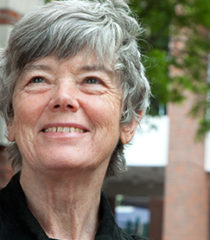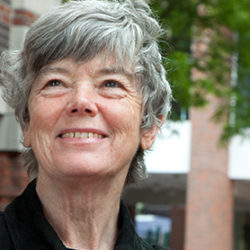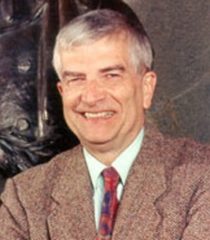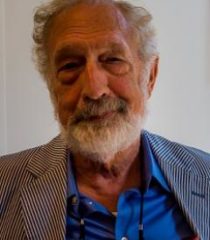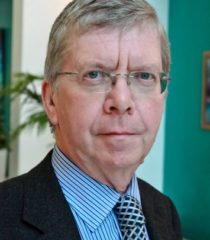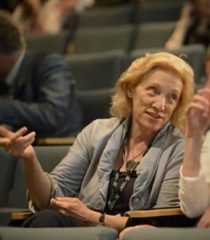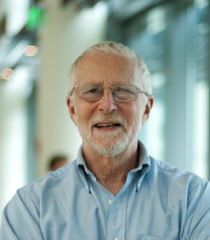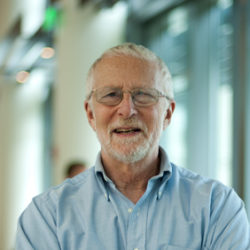Past Presidents
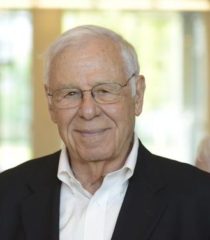
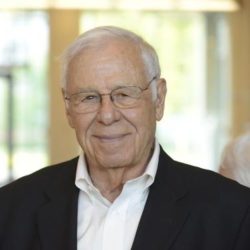
After receiving his Ph.D. in Sociology from the University of California, Berkeley in 1958, Dr. Amitai Etzioni served as a Professor of Sociology at Columbia University for 20 years; part of that time as the Chairman of the department. He was a guest scholar at the Brookings Institution in 1978 before serving as a Senior Advisor to the White House from 1979-1980. In 1980, Dr. Etzioni was named the first University Professor at The George Washington University, where he is the Director of the Institute for Communitarian Policy Studies. From 1987-1989, he served as the Thomas Henry Carroll Ford Foundation Professor at the Harvard Business School.
Dr. Etzioni served as the president of the American Sociological Association in 1994-95, and in 1989-90 was the founding president of the international Society for the Advancement of Socio-Economics. In 1990, he founded the Communitarian Network, a not-for-profit, non-partisan organization dedicated to shoring up the moral, social and political foundations of society. He was the editor of The Responsive Community: Rights and Responsibilities, the organization’s quarterly journal, from 1991-2004. In 1991, the press began referring to Dr. Etzioni as the ‘guru’ of the communitarian movement.
Dr. Etzioni is the author of over thirty books, including The Monochrome Society (Princeton: Princeton University Press, 2001), The Limits of Privacy (New York: Basic Books, 1999), The New Golden Rule (New York: Basic Books, 1996), which received the Simon Wiesenthal Center’s 1997 Tolerance Book Award, The Spirit of Community (New York: Crown Books, 1993), and The Moral Dimension: Toward a New Economics (New York: Free Press, 1988). His most recent books are My Brother’s Keeper: A Memoir and a Message (Lanham, MD: Rowman & Littlefield, 2003), From Empire to Community: A New Approach to International Relations (New York: Palgrave Macmillan, 2004), How Patriotic is the Patriot Act?: Freedom Versus Security in the Age of Terrorism (Routledge, 2004), and Seurity First: For A Muscular, Moral Foreign Policy (Yale University Press, 2007).
Outside of academia, Dr. Etzioni’s voice is frequently heard in the media. He appears often on radio and television programs, and is regularly consulted by print media as well.
In 2001, he was named by Richard Posner as being among the top 100 American intellectuals as measured by academic citations.
Also in 2001, Dr. Etzioni was awarded the John P. McGovern Award in Behavioral Sciences as well as the Officer’s Cross of the Order of Merit of the Federal Republic of Germany. He was also the recipient of the Seventh James Wilbur Award for Extraordinary Contributions to the Appreciation and Advancement of Human Values by the Conference on Value Inquiry, as well as the Sociological Practice Association’s Outstanding Contribution Award.
Book Review:
Law and society in a populist age: balancing individual rights and the common good




Nancy DiTomaso is Professor of Management and Global Business at Rutgers Business School—Newark and New Brunswick. Her research addresses issues of diversity, culture, and inequality, as well as the management of knowledge-based organizations, and the management of scientists and engineers. Her Ph.D. is from the University of Wisconsin‑‑Madison, and she previously taught at New York University and Northwestern University. She also has a Certificate in Business Administration from The Wharton School of the University of Pennsylvania and attended Proyecto Linguistico in Quetzeltenango, Guatemala.
In addition to 2013 book with the Russell Sage Foundation, The American Non-dilemma: Racial Inequality without Racism, she has co‑authored or co‑edited five other books and has had articles published in such journals as Administrative Science Quarterly, Academy of Management Journal, Annual Review of Sociology, Leadership Quarterly, California Management Review, Sex Roles, and IEEE Transactions on Engineering Management. In addition, she has been analyzing a survey of 100 innovation teams funded by a grant from the National Science Foundation. Her previous research includes survey data on the career experiences of 3200 scientists and engineers from 25 major companies.
She has been elected to several national offices in various professional associations, including a position on the American Sociological Association Council, as Chair of the Organizations and Occupations Section of the ASA, and as President of the Society for the Advancement of Socio‑Economics. She served as chair of the Department of Management and Global Business for twelve years, as Doctoral Director for the Ph.D. in Management Program for two years, and as Vice Dean of Faculty and Research for two and a half years.
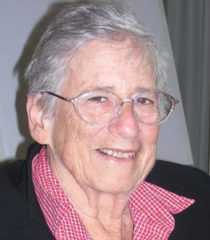
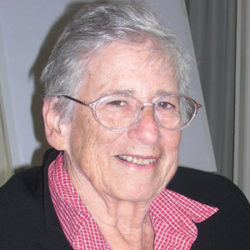

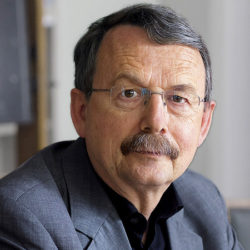
Wolfgang Streeck is Director at the Max Planck Institute for the Study of Societies, Cologne, and Professor of Sociology in the Faculty of Economics and Social Science at the University of Köln. His research is located at the intersection between political science and political economy, on the one hand, and sociology, especially economic sociology, on the other. His interest is and has always been the tension between a democratic polity and a capitalist economy, as reflected in the constitution of the modern welfare state and in the regulation of labor relations and the employment relationship through trade unions and employer associations.
His most recent publications include Buying Time: The Delayed Crisis of Democratic Capitalism, Verso, 2014; Politics in the Age of Austerity, Polity, 2013; Re-Forming Capitalism: Institutional Change in the German Political Economy, Oxford University Press, 2010; and Beyond Continuity: Institutional Change in Advanced Political Economies, (co-authored with Kathleen Thelen) Oxford University Press, 2005


Robin Stryker is a professor in sociology at Purdue University.
She completed a Ph.D. and M.S. in sociology at the University of Wisconsin and graduated summa cum laude with highest honors in sociology from Smith College.
Stryker joins Purdue from the University of Arizona, where she was professor of sociology, affiliated professor of law, and affiliated professor of government and public policy. She received legal training at Yale Law School and the Maurer School of Law at Indiana University. From 2011-16, she was Research Director of the University of Arizona’s National Institute for Civil Discourse. She was also a faculty member at the University of Minnesota (2000-08) and the University of Iowa (1986-2000). She has been a visiting professor at EHESS and at Sciences-Po, LIEPP, both in Paris, and she has an ongoing visiting relationship with Sciences-Po, CSO, in Paris.
Stryker’s scholarship spans multiple disciplines, including sociology, law, political science, communication, and history. Among her research foci are law; politics and inequality; organizational and institutional change; political and legal legitimacy; the comparative welfare state and social policy; sociological theory and methods; and incivility, politics, and the media. She has written extensively on the politics of social and behavioral science in U.S. regulatory law, including labor law, antitrust law, and the law of employment discrimination and affirmative action. She publishes regularly in such journals as the American Journal of Sociology; the American Sociological Review; Sociological Methods and Research; Research in the Sociology of Organizations; Research in Stratification and Social Mobility; Law & Social Inquiry; the Annual Review of Law & Social Science; Social Politics; Politics & Society; and Communication Monographs. With LaDawn Haglund, she co-edited Closing the Rights Gap: From Human Rights to Social Transformation (University of California Press, 2015).
Stryker has received numerous research grants, fellowships, and awards for scholarship and teaching. She received multiple undergraduate teaching awards from the University of Iowa, a faculty mentoring award from the Department of Sociology at the University of Minnesota, and in 2014, she received the university-wide Graduate and Professional Teaching and Mentoring Award at the University of Arizona. In 2001-02, she was a Robert Schuman Fellow at the Robert Schuman Center, European University Institute, Florence, Italy. In 2008, she was awarded a John Simon Guggenheim Foundation Fellowship. And in 2016-17, she was a fellow at the Center for Advanced Studies in the Behavioral Sciences at Stanford University. At the University of Arizona, she was Earl H. Carroll Magellan Fellow in the College of Social and Behavioral Sciences (2011). At the University of Minnesota, she was a Scholar of the College of Liberal Arts (2004-07), and at the University of Iowa, she was a University Faculty Scholar (1993-96).
She has been a member of numerous editorial and advisory boards. She is a past president of the Society for the Advancement of Socio-Economics (2000-01), past chair of three sections of the American Sociological Association (Political Sociology in 2011-12, Theory in 2005-06, and Sociology of Law in 1999-2000), and has served as an elected council member for the American Sociological Association (2007-10), during which time she chaired the council’s Subcommittee on the Production and Use of Federal Social Science Data. She has served as a member of the National Science Foundation’s Law and Social Science Review Panel (2008-10). From 2015-17, she was a member of the National Research Council’s Roundtable on the Communication and Use of Social and Behavioral Science.
In 2018, with co-author Nicholas Pedriana, Stryker received Distinguished Article Awards from the ASA’s Human Rights Section and its Section on Political Sociology (for “From Legal Doctrine to Social Transformation: Comparing U.S. Voting Rights, Equal Employment Opportunity and Fair Housing Legislation,” published in the American Journal of Sociology in 2017). Previously, with then-graduate student co-authors Bethany Conway and J. Taylor Danielson, she received a Top Paper Award from the Political Communication Section of the National Communication Association (2014). She also received the Distinguished Article Award from the Sociology of Law Section of the American Sociological Association (2005, with co-author Pedriana), the Barrington Moore Award for Best Article in Comparative and Historical Sociology (from the Comparative and Historical Section of the American Sociological Association, 1997, for her article, “Beyond History vs. Theory; Strategic Narrative and Sociological Explanation”), and the Founder’s Prize from the Society for the Advancement of Socio-Economics (1997, with co-author Pedriana).
Stryker, who has lived in many cities across the U.S. and Europe, was born and raised in Bloomington, Indiana, and is delighted to be coming home to Indiana to join the faculty at Purdue.


G: Labor Markets, Education, and Human Resources
David Marsden was a professor of industrial relations at the London School of Economics and Political Science. His research interests included comparative employment systems; international and comparative human resource management; incentives, rewards, and economic performance; and public management.
We will remember David as an inspirational colleague, mentor and friend. His contribution to SASE is immeasurable. He served as SASE President in 2002-2003. He was the organizer for Network G: Labor Markets, Education, and Human Resources over several decades, where he personally welcomed generations of young scholars into SASE. David helped SASE to host its annual conference twice at the LSE, in 2000 and most recently in 2015. Together with Alex Hicks, David was the founding editor of Socio-Economic Review (SER) and held this position from 2001-2006.
David Marsden was an excellent scholar, whose exemplary vision of academic dialogue went beyond both disciplinary and national borders. In their inaugural SER editorial, Alex Hicks and David wrote, “With the Review, we launch an enterprise that we hope will address and create dialogue among a wide and inclusive range of the various communities interested in the economy.” David practiced this in his own research, his mentorship of generations of faculty and students at LSE, as well as his contributions to numerous journals and academic associations. He was a founding editor of Industrielle Beziehungen (the German Journal of Industrial Relations), an editor of Travail et Emploi (a research journal published by the French ministry of labour), and general editor of the British Journal of Industrial Relations. His scholarly work on labor markets, industrial relations, and human resource management was always informed by insights from cross-national comparison and his guiding concern with understanding the role of politics and institutions in shaping the economy. These themes were reflected in numerous articles, as well as his major work A Theory of Employment Systems: Micro-Foundations of Societal Diversity (1999, Oxford University Press). Starting from the economics of the employment relationship, David developed a novel interdisciplinary theory of managerial authority in organizing work that took account of how institutions shaped and limit such authority in very different ways across countries.
Through his service, David contributed to both the organizational development and international visibility of SASE. He was quite simply also one of the nicest persons in the profession: energetic, engaging, and supportive, especially for younger and emerging scholars.
David Marsden died on August 10, 2021 after a sudden and short illness. We have lost a truly extraordinary colleague and miss him very dearly. Our sympathy goes to his family and loved ones.
You can share your memories of David in a digital condolence book created by his LSE colleagues: here.


Colin Crouch is Professor Emeritus at Warwick Business School in the UK. He is an economic sociologist, with particular interests in international comparative research at the interface between sociology, politics and the study of work and employment. His writings in comparative political economy constitute a programme of comparative analysis of the regulation of work and employment, the structure and behaviour of organised interest groups, and national governance regimes. He was previously Professor of Comparative Social Institutions at the European University Institute, Florence, and has also held academic positions at Oxford University and LSE. He is a Fellow of the British Academy, member of the Academy of Social Sciences, External Scientific member of the Max Planck Institute for Social Research at Cologne, and a former president of SASE.


Christel Lane is Professor Emeritus of Economic Sociology, a member of the Department of Sociology and a Fellow of St. John’s College. She has published numerous books and papers in a wide range of journals. Among her books are The Rites of Rulers (CUP 1081); Management and Labour in Europe (Edward Elgar 1989); Industry and Society in Europe (Edward Elgar 1995); Trust Within and Between Organizations (with R. Bachmann, OUP 1998); National Capitalisms, Global Production Networks. Fashioning the value chain in the UK, USA and Germany (with Jocelyn Probert, OUP 2009); and Capitalist Diversity and Diversity within Capitalism (edited with Geoffrey Wood, Routledge 2012. Her latest book, to be discussed at SASE/LSE 2015, is The Cultivation of Taste: Chefs and the Organization of Fine Dining (OUP, 2014).
Prof Lane has served on the editorial boards of The British Journal of Sociology, Work, Employment and Society and Socio-Economic Review. She is Past President of the Society for the Advancement of Socio-Economics (SASE) and has served as a member of its Executive Council of SASE, as well as of the Scientific Advisory Board, Soziologisches Forschungsinstitut Goettingen/Germany.
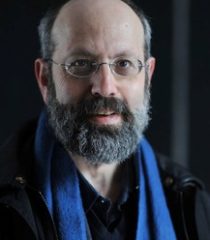

L: Regulation and Governance
Jonathan Zeitlin is Professor of Public Policy and Governance , and Distinguished Faculty Professor in the Department of Political Science and the Faculty of Social and Behavioral Sciences (FMG) at the University of Amsterdam.
Professor Zeitlin holds a Jean Monnet Chair in European and Transnational Governance from the European Commission (2011-14). He is also a member of the steering committee of the Political Economy and Transnational Governance (PETGOV) research programme of the Amsterdam Institute for Social Science Research (AISSR).
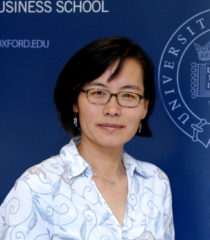
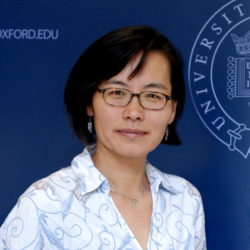
O: Global Value Chains
She is a professor of Management Studies at Saïd Business School, University for Oxford. Her research focuses on the connection between global corporate strategy, comparative business systems and human resource management, and understanding how business enterprises are governed in different ways in different locations, with specific attention to human resources and supply chains.

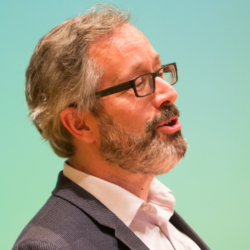
N: Finance and Society
He is a professor in the Department of Sociology, at Northwestern University. His areas of research include historical and comparative sociology, economic sociology, sociology of law and sociology of organizations. Bruce has authored or co-authored five books, most recently Money and Credit: A Sociological Approach (Polity Press, 2010). His current research projects are on the evolution of credit decision-making as a problem in the sociology of trust, and the legal regulation of predatory lending in early 20th century U.S.


Glenn Morgan is Professor of Management in the School of Economics, Finance and Management, University of Bristol, UK. He has previously worked at Manchester Business School, Warwick Business School and Cardiff Business School. He has been a visiting professor at Copenhagen Business School and a number of other institutions in Europe and North America. He was President of SASE in 2014-15. His research interests lie in the areas of globalisation, financialization, institutions, multinationals, regulation and elites. As well as studies in Europe, he has written on East Asian and Latin American forms of capitalism. He has published in a wide range of journals including Organisation Studies, Human Relations, Economy and Society, Socio-Economic Review, Industrial Relations, Journal of European Public Policy. He was editor of the Journal Organization from 2005-2008 and serves on a number of editorial boards. Recent jointly edited collections Research in the Sociology of Organizations Vol.43 Elites on Trial (Emerald Publishing 2015), The Oxford Handbook of Sociology, Social Theory and Organisation Studies (Oxford UP 2014), New Spirits of Capitalism? Crises, Justifications and Dynamics (Oxford UP 2013) and Capitalisms and Capitalism in the Twenty-First Century (Oxford UP 2012).
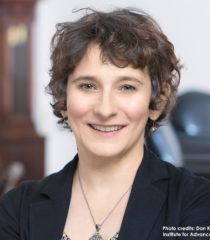
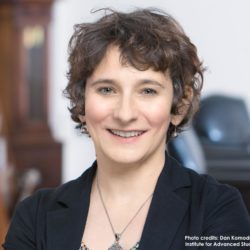
Marion Fourcade received her PhD from Harvard University (2000) and taught at New York University and Princeton University before joining the Berkeley sociology department in 2003. A comparative sociologist by training and taste, she is interested in variations in economic and political knowledge and practice across nations. Her first book, Economists and Societies (Princeton University Press 2009), explored the distinctive character of the discipline and profession of economics in three countries. A second book, The Ordinal Society (with Kieran Healy), is under contract. This book investigates new forms of social stratification and morality in the digital economy. Other recent research focuses on the valuation of nature in comparative perspective; the moral regulation of states; the comparative study of political organization (with Evan Schofer and Brian Lande); the microsociology of courtroom exchanges (with Roi Livne); the sociology of economics, with Etienne Ollion and Yann Algan, and with Rakesh Khurana; the politics of wine classifications in France and the United States (with Rebecca Elliott and Olivier Jacquet). A final book-length project, Measure for Measure: Social Ontologies of Classification, will examine the cultural and institutional logic of what we may call “national classificatory styles” across a range of empirical domains.
Fourcade is also an Associate Fellow of the Max Planck-Sciences Po Center on Coping with Instability in Market Societies (Maxpo), and the current President of the Society for the Advancement of Socio-Economics.
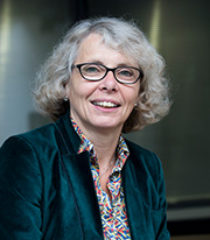
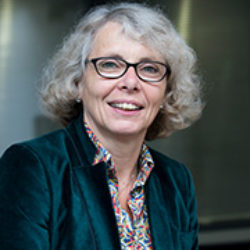
Christine Musselin is the director of the Centre de Sociologie des Organisations, a research unit of Sciences Po and the CNRS. She leads comparative studies on university governance, public policy in higher education and research, state-university relationships, and academic labor markets. Two of her books, La longue marche des universités françaises (published by the P.U.F in 2001) and Le marché des universitaires, France Allemagne, Etats-Unis, were published in English translation by Routledge in 2004 and 2009, respectively. She was a DAAD fellow in 1984-1985 and a Fulbright and Harvard fellow in 1998-1999. She is co-editor of Higher Education and a member of the editorial board of Sociologie du Travail.
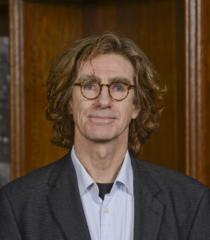
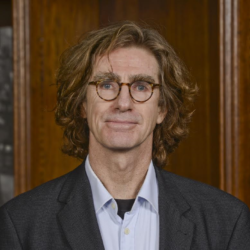
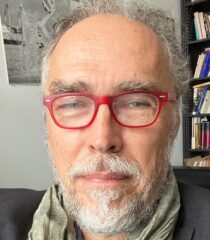

N: Finance and Society
Akos Rona-Tas is Professor of Sociology at the University of California, San Diego where he is also founding faculty of the Halicioğlu Data Science Institute. For many years, he was a senior research associate at INRA, Paris, and he was the President of SASE in 2018-2019.
He has written two books on market creation. Great Surprise of the Small Transformation: Demise of Communism and Rise of the Private Sector in Hungary, was published by Michigan University Press, the second one, co-authored with Alya Guseva, Plastic Money: Constructing Markets for Credit Cards in Eight Postcommunist Countries, by Stanford University Press.
He has published articles on the post-communist transition, on small entrepreneurs, consumer credit, and payment card markets in journals including the American Sociological Review, American Journal of Sociology, Theory and Society, Socio-Economic Review, Social Science Research, Research on Sociology of Organizations, Journal of Comparative Economics, Research in the Sociology of Work, as well as various chapters in edited volumes. He is currently working on the problem of rationality and uncertainty in two different contexts: credit assessment and the use of science in risk management.
Akos Rona-Tas has been a member of SASE since 2005. He is the co-founder and co-organizer of the Finance and Society Network, served on the Executive Council between 2012 and 2015, as Treasurer between 2015 and 2018, and as SASE President in 2018/19.
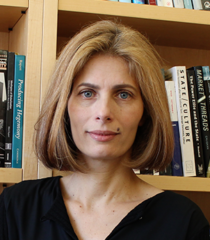
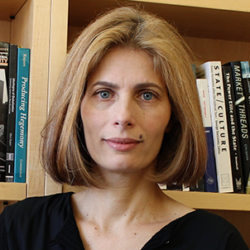
Nitsan Chorev is the Harmon Family Professor of Sociology and International & Public Affairs at Brown University in the US. Chorev was previously a member at the Institute for Advanced Study at Princeton, a fellow at the Woodrow Wilson International Center for Scholars, and a fellow at the UCLA International Institute. Among other publications, she is the author of Remaking U.S. Trade Policy: From Protectionism to Globalization (Cornell University Press, 2007) and of The World Health Organization between North and South (Cornell University Press, 2012). Her most recent book, Give and Take: Developmental Foreign Aid and Local Pharmaceutical Production in Kenya, Tanzania and Uganda was published by Princeton University Press in 2019.
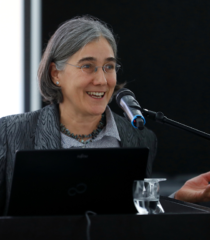
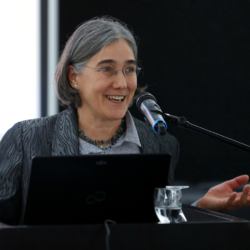
D: Professions and Professionals in a Globalizing World
Sigrid Quack is Director of the Centre for Global Cooperation Research and Professor of Comparative Sociology at the University Duisburg-Essen in Germany. Previously, she was Leader of the Research Group on Institution Building across Borders at the Max Planck Institute for the Study of Societies in Cologne and for many years a Senior Researcher at the WZB Social Science Center Berlin. She has been a visiting fellow at the Stockholm Centre for Organizational Research (SCORE); the Watson Institute for International Studies at Brown University, Providence; the École Normal Supérieure Cachan; and St. John’s College at the University of Cambridge.
Sigrid has written widely on globalization and institutional change, transnational governance, professions and expertise, as well as previously on the comparative analysis of capitalism, gender relations, labour markets and employment systems. Among other publications, Sigrid has co-edited two volumes with Marie-Laure Djelic on Transnational Communities (Cambridge University Press) and Globalization and Institutions (Edward Elgar). She has published articles in Accounting, Organizations and Society;Annual Review of Sociology; Cambridge Journal of Economics; Global Policy; Organization Studies; Revista de Administração de Empresas; Review of International Political Economy; Socio-Economic Review and Theory and Society. Her most recent German book (co-edited with Schulz-Schaeffer, Shire and Weiß) explores forms and regulations of transnational work and labour markets (Transnationale Arbeit, VS Springer). Sheis currently working on two major projects: organized creativity and intellectual property rights in pharma and music; and imagined pathways to global cooperation in transnational governance.
Sigrid Quack has been a member of SASE since 2006. She is a co-organizer of Network D: Professions and Professionals in a Globalizing World, has served on the Executive Council since 2014, on the SER Best Prize Committee in 2016 and 2018 and on the Diversity Committee in 2019.
Photo by Georg Lukas / KHK/GCR21


Jacqueline O’Reilly is full Professor of Comparative HRM at the University of Sussex Business School and Co-Director for the ESRC £8 million investment in the Digital Futures at Work Research Centre (digit-research.org) (2020-24).
She is the UK lead on the Horizon 2020 EUROSHIP project on social protection in Europe (euroship-research.eu) (2020-23). Previously, she coordinated EU STYLE: Strategic Transitions for Youth Labour in Europe (www.style-research.eu) (2014-17) and was UK lead on the EU NEGOTIATE project (www.negotiate-research.eu) (2015-18).
Her most recent research focuses on the digital transformation of work, labour market policy and international comparisons of gender, ethnicity and labour market transitions across the life course.
She completed her doctorate at Nuffield College, University of Oxford on an Anglo-French comparison of employment practices in the banking sector. She worked for ten years at the Social Science Research Centre Berlin (WZB), Germany, and at Sciences Politiques in Paris, London, Manchester and Brighton Universities in the UK.
In 2000 she was awarded a Jean Monnet Research Fellowship at the European University Institute in Florence. She is a visiting research fellow at the Collegio Carlo Alberto, University of Turin, a member of the Scientific Advisory Board of Sciences Politiques, Paris, and Visiting Senior Research Fellow at the Wirthschafts- und Sozialwissenschaftes Institut (WSI), Dusseldorf.
She has served on the editorial board of the BJIR, Socio-Economic Review, and Work, Employment and Society where she was also Chair of the editorial board. She was elected twice to the Executive Council of SASE. In 2019 she was elected Fellow of the Academy of Social Sciences for her distinguished contribution to the field of interdisciplinary research.
She has been consulted by HM Treasury, Full Employment Team and the UK Cabinet Office Open Innovation Unit on equal pay and youth employment. She is an Evaluation Rapporteur for the European Commission Horizon 2020 research programme, was invited as an advisor to the ILO Work4Youth programme funded by The MasterCard Foundation, and was an evaluator on two occasions for the German Excellence Initiative of the Deutsche Forschungsgemeinschaft (€151 million investment).
She lives in Hove, UK with her two teenage sons where she enjoys living by the sea, watching Nordic Noir and discovering whether youth music today is better than that of the 1980s.
Researchgate.net: https://www.researchgate.net/profile/Jacqueline_Oreilly
ORCID ID: http://orcid.org/0000-0001-6223-154X
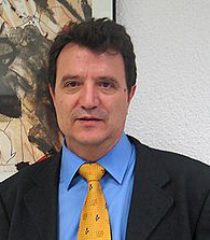
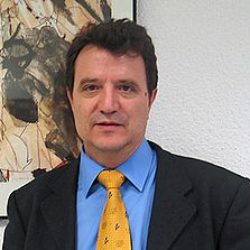
M: the Spanish Language Network
Santos Ruesga is Professor of Applied Economics at the Autonomous University of Madrid. He has taught in numerous academic centers in multiple countries in Europe (Spain, Germany, Italy, Netherlands, United Kingdom, etc.), North America (Mexico and USA), Latin America (Peru, Brazil, Ecuador, Colombia, etc.), and Asia (China and Japan). As a researcher in socio-economics, he has specialized in the study of labor relations, the informal economy, and Latin American economies, from macroeconomic and empirical perspectives. On these topics, he has published a large number of books and articles in academic and professional journals and has participated in more than a hundred international and national scientific congresses. He is also a prolific organizer of scientific events, serving on numerous scientific councils at international congresses and meetings, and participating in more than a dozen editorial and advisory boards of scientific journals in various countries.
Likewise, he dedicates a significant intellectual effort to the work of knowledge transfer, having given numerous lectures, written several hundred newspaper articles, carried out technical reports (European Union, Spanish Government, World Bank, etc.), advised public and private organizations, and organized multiple informative events.
He was a member of the Superior Council of the European University Institute in Florence, Italy for ten years (2000-2010) and was Vice Chairman of the Menéndez Pelayo International University of Spain (200-2004). Currently, he leads a Research Group named Labour Socioeconomics, which brings together researchers from various countries.
He has been a member of the SASE since 2006; served on SASE’s Executive Council between 2012 and 2018; founded and coordinated its Ibero-American regional meetings (UNAM-Mexico-2013; UFRGS-Porto Alegre-Brazil, 2015; UTB-Cartagena de Indias – Colombia, 2017; UNC-Costa Rica- 2019; UNMSM-Peru-2021); served as local organizer of the 22nd SASE Annual Meeting (Madrid, 2011); and has been co-organizer of Network M (Spanish Language) since 2010.
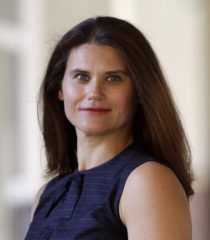
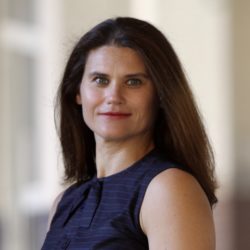
Nina Bandelj is Chancellor’s Professor in the Department of Sociology at the University of California, Irvine. She is an economic sociologist interested in how relational work, emotions, culture and power influence economic processes and has published widely, including in the American Sociological Review, American Journal of Sociology, Nature Human Behavior, Proceedings of the National Academy of Science, Social Forces and Socio-Economic Review. Her books include From Communists to Foreign Capitalists (2008); Economic Sociology of Work (2009); Economy and State (with Elizabeth Sowers, 2010); The Cultural Wealth of Nations (with Frederick F. Wherry, 2011); Socialism Vanquished, Socialism Challenged (with Dorothy Solinger, 2012); and Money Talks (with Frederick F. Wherry and Viviana A. Zelizer, 2017). Her newest book on The Emotional Economy of Parenting is forthcoming with Princeton University Press.
Bandelj is Past President of the Society for the Advancement of Socio-Economics and elected member of the honorary Sociological Research Association. She was Vice-President of the American Sociological Association, longtime and first woman editor of Socio-Economic Review and the inaugural associate vice provost for faculty development at UC Irvine.


